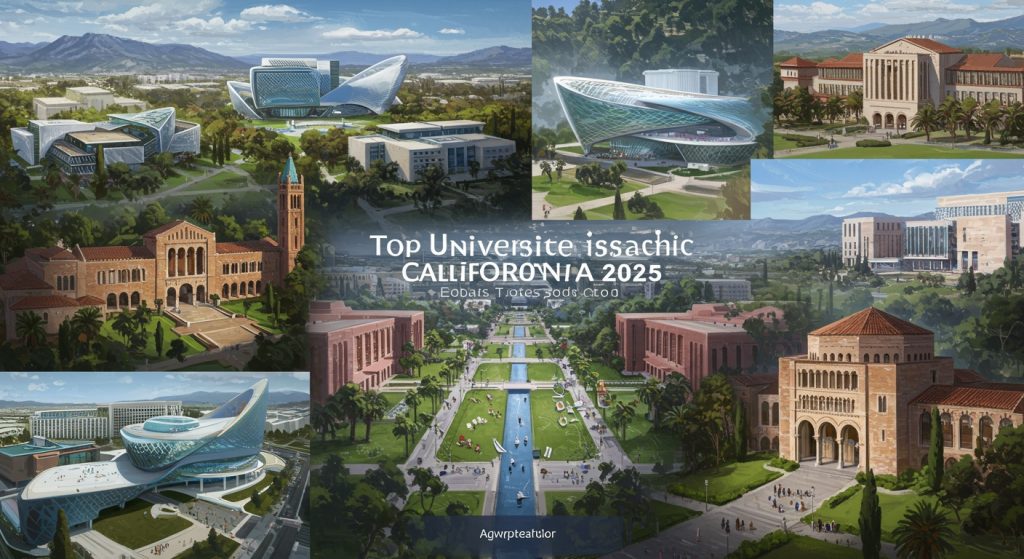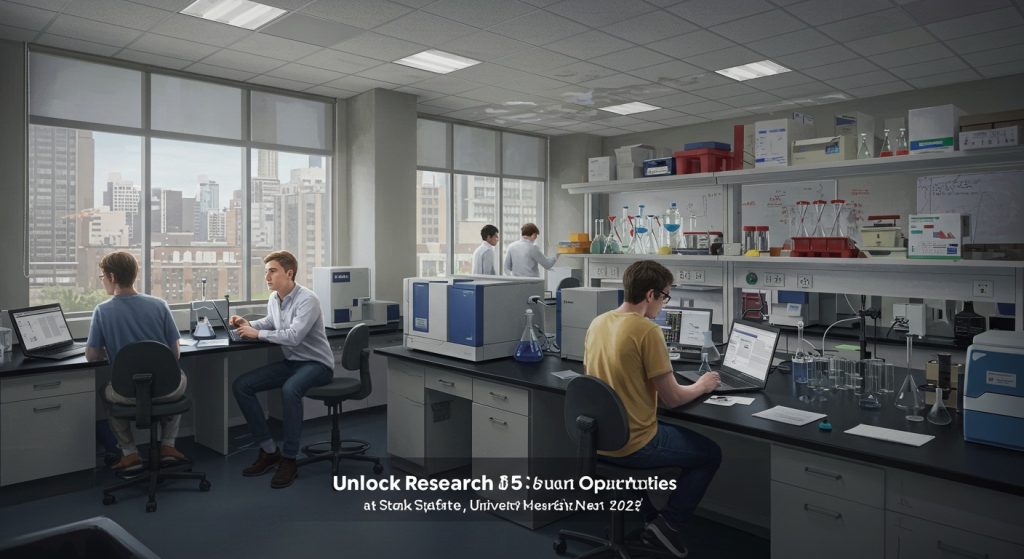The quest for a premier higher education experience in Madhya Pradesh demands a strategic approach, given the state’s burgeoning academic landscape. Identifying the top university in MP involves navigating a dynamic environment shaped by the National Education Policy 2020’s emphasis on multidisciplinary learning and skill development. Institutions like the Indian Institute of Management Indore and IIT Indore consistently feature in national rankings for their specialized programs, while others, such as Devi Ahilya Vishwavidyalaya, offer a broad spectrum of undergraduate and postgraduate courses. Recent trends highlight an increasing demand for future-ready curricula integrating AI, data science. sustainable technologies. Prospective students must critically evaluate faculty expertise, research output, industry collaborations. campus infrastructure to make an informed choice that aligns with their career aspirations.

Understanding Your Priorities: Your Compass to the Perfect Campus
Embarking on the journey to higher education is an exhilarating adventure. the first step, arguably the most crucial, is understanding yourself! Before you even begin to research institutions, take a moment to reflect on what truly matters to you. What are your academic passions? What kind of career aspirations drive you? A clear understanding of your personal and professional goals will act as your compass, guiding you through the myriad of choices available in Madhya Pradesh.
- Self-Assessment is Key: Do you thrive in a highly competitive, research-intensive environment, or do you prefer a more collaborative, application-focused approach? Consider your preferred learning style – lecture-based, project-based, or hands-on? Your answer will significantly narrow down your options for a top university in MP.
- Aligning Programs with Passions: Think about the subjects that genuinely excite you. Are you fascinated by the intricate world of engineering, the vastness of the humanities, the precision of science, or the dynamics of business? Ensure the university offers programs that not only align with your interests but also provide depth and specialization in those areas. For instance, a student passionate about AI might look for universities with dedicated AI labs and faculty specializing in machine learning.
- Career Trajectory: Envision your ideal career path. While it’s okay for this to evolve, having a general idea helps. Some universities excel in preparing students for corporate roles, others for entrepreneurship. some for academia and research. Research the alumni networks and success stories to see if they resonate with your ambitions.
Actionable Takeaway: Create a personal checklist detailing your academic interests, preferred learning environment, career aspirations. desired campus culture. This will be your foundational document for evaluating every prospective university.
Academic Excellence and Program Offerings: The Core of Your Education
Once you know what you’re looking for, it’s time to dive into the academic heart of each institution. The quality of education is paramount. a top university in MP will distinguish itself through its robust academic framework, innovative programs. distinguished faculty. This section will help you dissect the academic prowess of potential universities.
- Accreditations and Rankings: Look for national and international accreditations (e. g. , NAAC, NBA for engineering, UGC recognition). These are stamps of quality assurance. Reputable rankings (like NIRF in India) can offer a comparative perspective, though they should not be the sole determinant. A university consistently ranked as a top university in MP is often a strong indicator of quality.
- Faculty Expertise and Research: Investigate the faculty profiles. Are they experienced, published researchers in their fields? Do they bring industry experience to the classroom? A strong faculty base indicates a vibrant intellectual environment. Research output, patents. grants received by the faculty are excellent indicators of a university’s commitment to innovation.
- Curriculum Design and Flexibility: Examine the curriculum. Is it up-to-date with industry trends? Does it offer interdisciplinary courses, electives. opportunities for minors or specializations? Modern education emphasizes flexibility and the ability to tailor your learning experience. For example, a student might want to pursue a Computer Science degree with a minor in Psychology. a forward-thinking university would facilitate this.
- Diversity of Programs: Beyond your primary chosen course, does the university offer a range of undergraduate, postgraduate. doctoral programs? This often indicates a rich academic ecosystem and opportunities for future growth.
Comparison: Public vs. Private Universities in MP
Madhya Pradesh hosts a mix of public and private institutions, each with its unique strengths.
| Feature | Public Universities (e. g. , Devi Ahilya Vishwavidyalaya, Barkatullah University) | Private Universities (e. g. , Amity University, Symbiosis University of Applied Sciences) |
|---|---|---|
| Funding & Fees | Government-funded, generally lower tuition fees. | Self-financed, generally higher tuition fees. often more scholarships. |
| Curriculum | Often more traditional, structured. research-oriented. | Often more industry-aligned, flexible. skill-focused. |
| Infrastructure | Can vary; some older institutions have well-established but aging infrastructure, others are modern. | Generally modern, state-of-the-art facilities due to recent investments. |
| Class Size | Typically larger class sizes. | Often smaller class sizes, allowing for more personalized attention. |
| Autonomy | Less administrative autonomy, often subject to government policies. | More administrative and academic autonomy, quicker to adapt. |
Actionable Takeaway: Scrutinize the program brochures, faculty profiles on the university website. academic calendars. Don’t hesitate to reach out to departments with specific questions about course content or research opportunities.
Infrastructure and Facilities: Beyond the Classroom Walls
A university is more than just its classrooms. The physical environment and the resources it offers play a significant role in your overall learning experience and personal growth. A truly top university in MP understands that cutting-edge facilities are crucial for fostering innovation and providing a holistic education.
- Modern Libraries and Learning Spaces: Does the library offer extensive physical and digital resources (e-journals, databases)? Are there quiet study zones, collaborative spaces. access to the latest software? A well-equipped library is the intellectual heart of any institution.
- State-of-the-Art Laboratories and Workshops: For science, engineering. vocational courses, advanced labs with the latest equipment are non-negotiable. For example, an engineering student would benefit immensely from access to 3D printers, robotics labs, or specialized software suites. Practical, hands-on experience is vital for bridging the gap between theory and application.
- Technological Connectivity: Reliable high-speed internet across the campus, smart classrooms. access to learning management systems (LMS) are essential in today’s digital age.
- Sports and Recreational Facilities: A balanced life is crucial. Look for well-maintained sports grounds, gyms, indoor sports complexes. facilities for various extracurricular activities. These contribute significantly to physical well-being and team-building skills.
- Hostel and Residential Amenities: If you plan to live on campus, evaluate the quality of hostels, mess facilities, security. common areas. A comfortable living environment contributes to academic focus.
Real-world Application: Imagine you’re a budding journalist. A university with a dedicated media lab, a student-run radio station, or a well-equipped photography studio would offer invaluable practical experience that textbook learning simply cannot replicate. Or, if you’re a design student, access to advanced CAD software and prototyping labs makes all the difference.
Actionable Takeaway: Whenever possible, visit the campus in person. Take a guided tour. pay close attention to the condition and availability of facilities relevant to your chosen field of study. Speak to current students about their experience with the infrastructure.
Campus Life, Culture. Student Support: Your Home Away From Home
Your university experience extends far beyond lectures and exams. The campus environment, its culture. the support systems in place are vital for your personal development, networking. overall well-being. A vibrant and supportive campus is a hallmark of a top university in MP.
- Extracurricular Activities and Clubs: Does the university offer a diverse range of clubs and societies covering academic interests, arts, sports, social work. more? Engaging in these activities helps develop leadership skills, teamwork. provides a much-needed break from academics.
- Cultural Diversity and Inclusion: A diverse student body enriches the learning experience by exposing you to different perspectives and ideas. Look for universities that actively promote an inclusive environment where every student feels valued and respected.
- Student Support Services: This is a critical, yet often overlooked, aspect. Does the university offer robust counseling services, academic advising, mentorship programs. health services? These support systems are invaluable during challenging times, both academically and personally. For instance, career guidance cells often start assisting students from their first year, helping them identify strengths and plan for future roles.
- Events and Festivals: A lively campus often hosts a variety of cultural festivals, technical fests, sports events. guest lectures. These events provide opportunities for networking, showcasing talents. fostering a sense of community.
Anecdote/Example: “During my undergraduate years at a prominent institution in Indore, the sheer number of student clubs was astounding. I joined the debating society, which not only honed my public speaking skills but also introduced me to friends from various departments. This vibrant campus life was as educational as my classes, teaching me collaboration, critical thinking. time management.”
Actionable Takeaway: Explore the “Student Life” section of university websites. Look for student testimonials. if possible, connect with current students via social media or during campus visits to get an authentic feel for the campus culture.
Placement and Career Opportunities: Investing in Your Future
For many students, the ultimate goal of higher education is a rewarding career. Therefore, evaluating a university’s placement record and career support services is absolutely essential. A top university in MP will not only equip you with knowledge but also open doors to excellent professional opportunities.
- Placement Records and Statistics: Scrutinize the university’s placement reports. Look for details such as the percentage of students placed, average and highest salary packages. the sectors/companies that recruit from the campus. Transparency in these statistics is a good sign.
- Industry Collaborations and Internships: Does the university have strong ties with industries? Look for structured internship programs, industry projects. guest lectures by corporate leaders. Internships provide invaluable real-world experience and often lead to pre-placement offers.
- Alumni Network: A strong and active alumni network can be a tremendous asset. Alumni often serve as mentors, provide networking opportunities. even facilitate placements. Research the professional achievements of the university’s alumni.
- Career Guidance and Training: A dedicated career services department that offers resume building workshops, interview preparation, soft skills training. aptitude test coaching is crucial. Some universities even have dedicated entrepreneurship cells to nurture aspiring business owners.
Comparison: Universities with Strong Industry Ties vs. Research-Focused Institutions
| Aspect | Industry-Tied Universities (often private or specialized tech institutions) | Research-Focused Universities (often public or traditional institutions) |
|---|---|---|
| Primary Goal | Prepare students directly for industry roles; emphasis on practical skills. | Foster critical thinking, deep theoretical knowledge. contribute to academic research. |
| Curriculum | Frequently updated to meet industry demands; more project-based learning. | More theoretical, often with opportunities for independent research projects. |
| Placement Focus | Strong campus recruitment drives, emphasis on immediate employment. | May have good placements. also strong pathways to higher studies/research. |
| Faculty Profile | Mix of academics and professionals with industry experience. | Primarily academics with strong research backgrounds. |
Actionable Takeaway: Attend career fairs hosted by the university, speak to placement officers. definitely connect with recent graduates on platforms like LinkedIn to get firsthand insights into their career journeys.
Location and Accessibility: Where Do You Want to Be?
The geographical location of your university can significantly impact your student experience, lifestyle. even career prospects. Madhya Pradesh offers a diverse landscape, from bustling metropolitan cities to serene, quieter towns, each with its unique advantages.
- Urban vs. Rural Campuses:
- Urban Campuses (e. g. , Bhopal, Indore, Gwalior): Offer more exposure to industry, cultural events, entertainment. part-time job opportunities. They provide a fast-paced lifestyle and excellent connectivity. But, they might come with higher living costs and potentially more distractions.
- Rural/Semi-Urban Campuses: Often provide a quieter, more focused academic environment with fewer distractions. They might offer a stronger sense of community and lower living costs. But, access to industry, internships. entertainment options might be limited.
- Proximity to Home: Consider how far you wish to be from your family. Some students prefer to stay close, while others embrace the opportunity to move to a new city and gain independence.
- Connectivity: Evaluate the ease of travel to and from the university. Proximity to airports, railway stations. bus terminals can be vital, especially if you plan to travel frequently.
- Local Industry Hubs: For certain fields, being close to relevant industry hubs is a huge advantage. For instance, an IT student might benefit from a university located near an IT park, offering more internship and networking opportunities.
Actionable Takeaway: Visit the city or town where the university is located. Get a feel for the local environment, public transport. general cost of living. This firsthand experience can be invaluable.
Financial Considerations: Making It Affordable
Higher education is a significant investment. understanding the financial implications is crucial for a stress-free academic journey. A top university in MP might come with a certain fee structure. it often offers various avenues to make it accessible.
- Tuition Fees: This is the most obvious cost. Ensure you have a clear understanding of the tuition fees for your entire program duration, including any annual increments.
- Scholarships and Financial Aid: Many universities offer merit-based scholarships, need-based financial aid, or scholarships for specific categories (e. g. , sports, arts, specific communities). Research these opportunities thoroughly and comprehend the application process and eligibility criteria. Government schemes also offer various scholarships.
- Educational Loans: Banks and financial institutions offer educational loans. interpret the interest rates, repayment terms. eligibility. Compare different loan providers.
- Cost of Living: Beyond tuition, factor in accommodation (hostel fees or rent), food, transport, books, personal expenses. miscellaneous costs. The cost of living can vary significantly between cities in MP.
- Return on Investment (ROI): While not purely financial, consider the potential return on your investment. A higher fee for a top university in MP might be justified by better placement opportunities, higher starting salaries. a stronger alumni network in the long run.
Example: “While Institution X had slightly higher tuition fees than Institution Y, its average placement package was significantly higher. it offered several merit scholarships for which I was eligible. Factoring in the potential career growth and the scholarship, Institution X actually offered a better long-term ROI for my engineering degree.”
Actionable Takeaway: Create a detailed budget encompassing all potential costs. Contact the university’s admissions or financial aid office for comprehensive data on fees, scholarships. payment plans.
The Application Process: Navigating the Admissions Maze
Once you’ve shortlisted your dream universities, the next step is successfully navigating their application processes. This can often seem daunting. with careful planning and attention to detail, it’s a manageable task. Each top university in MP will have its specific requirements, so thorough research is key.
- Eligibility Criteria: Carefully review the academic prerequisites for your chosen program. This includes minimum percentage requirements in qualifying exams (e. g. , 10+2), specific subject combinations. age limits if any.
- Entrance Examinations: Many programs, especially in engineering, medicine, law. management, require specific entrance exams.
- Engineering: JEE Main, JEE Advanced (for IITs), state-specific exams like MPPET (though now often replaced by JEE scores).
- Medical: NEET.
- Law: CLAT (for National Law Universities), LSAT-India, or university-specific tests.
- Management: CAT, XAT, MAT, CMAT, or university-specific management entrance tests.
grasp which exams are accepted by your target universities and plan your preparation accordingly.
- Application Forms and Deadlines: Pay meticulous attention to application opening and closing dates. Missing a deadline can cost you an entire academic year. Fill out application forms accurately and completely.
- Required Documents: Gather all necessary documents well in advance. This typically includes academic transcripts, mark sheets, identity proof, caste certificates (if applicable), photographs. sometimes letters of recommendation or essays/statements of purpose.
- Interviews/Group Discussions: Some programs, particularly at the postgraduate level or for specialized courses, may include interviews or group discussions as part of the selection process. Prepare to articulate your motivations, strengths. career goals clearly.
Tips for a Strong Application:
- Start Early: Give yourself ample time to research, prepare for exams. complete application forms without rush.
- Proofread Everything: A silly mistake in your application can leave a negative impression.
- Showcase Your Unique Self: If essays or statements of purpose are required, use them to highlight your personality, extracurricular achievements. what makes you a unique candidate beyond just grades.
- Seek Guidance: Don’t hesitate to seek advice from school counselors, teachers, or university admission helplines.
Actionable Takeaway: Create a calendar with all relevant deadlines for entrance exams and university applications. Maintain a folder (physical and digital) for all your documents to ensure nothing is missed.
Making Your Final Decision: Trust Your Gut (and Your Research!)
After all the research, self-reflection. application hurdles, the moment of truth arrives: making your final choice. This decision should be a culmination of all the factors you’ve considered, aligning both your logical analysis and your personal intuition. Choosing a top university in MP is not just about rankings; it’s about finding the perfect fit for you.
- Revisit Your Priorities: Go back to the personal checklist you created at the beginning. Does your top choice align with your academic, career. personal preferences?
- Weigh Pros and Cons: For each of your shortlisted universities, create a detailed pros and cons list across all the categories discussed (academics, facilities, campus life, placements, cost, location). Be honest about the trade-offs.
- Campus Visits and Interactions: If you haven’t already, make a final visit to your top contenders. Talk to as many current students and faculty members as possible. Their firsthand experiences can provide invaluable insights that brochures cannot. Attend virtual tours or webinars if physical visits aren’t feasible.
- Consider the ‘Feel’ Factor: Sometimes, a university just “feels right.” This intangible aspect, often influenced by the campus atmosphere and the people you meet, is vital. Trust your gut feeling. ensure it’s backed by solid research.
- Financial Feasibility: Reconfirm all financial commitments and ensure the chosen path is sustainable for you and your family.
Actionable Takeaway: Don’t rush this final decision. Discuss it with trusted mentors, family members, or school counselors. Once you’ve made your choice, embrace it with enthusiasm and look forward to the incredible journey ahead!
Conclusion
As you stand at this pivotal juncture, remember that choosing your university in MP is far more than just picking a name from a list; it’s about investing in your future trajectory. Don’t simply chase high NIRF rankings; instead, delve deeper to assess a college’s specific departmental strengths, its industry collaborations. the practical exposure it offers, especially given the current trend towards skill-based learning. For instance, if you’re eyeing engineering, investigate how institutions like IIT Indore or MANIT Bhopal integrate emerging technologies like AI or IoT into their curriculum, moving beyond traditional syllabi. My personal tip is to always visit campuses if possible, speak directly to current students. scrutinize alumni success stories in your desired field. A friend once chose a university based solely on its general reputation, only to find its specific program lacked the practical, hands-on experience crucial for industry readiness. Your ideal institution in Madhya Pradesh is the one that aligns with your unique aspirations, providing not just a degree. an ecosystem that nurtures your growth and connects you to tangible career opportunities. Trust your informed judgment; your future begins with this choice. For more insights on navigating university admissions, consider exploring Mastering CUET 2025: Your Essential Guide to Cracking the Common University Entrance Test.
More Articles
Avoid These Critical Mistakes: Your Smart Guide to CAT 2025 Exam Success
Top MBA Specializations for 2025: Aligning Your Skills with Market Demands
Achieve Your Goals: Flexible Online Degrees for Career Advancement at National University
Discovering Bihar’s Best: Your Guide to Top Universities for 2025 Admissions
Unlock Your Future: How a Harvard Degree Opens Doors to Global Opportunities
FAQs
I’m new to this – where do I even begin my search for universities in Madhya Pradesh?
Start by figuring out what you want to study! Once you have a general idea of your desired course or field, you can look into universities that offer those programs. Websites like UGC (University Grants Commission) and AICTE (All India Council for Technical Education) list accredited institutions. state education portals can also be helpful. Don’t forget to ask friends, family, or counselors for recommendations too.
Besides the course, what other key factors should I really consider?
A lot! Think about the university’s accreditation and rankings – these give you an idea of quality. Look into the faculty’s experience, research opportunities. placement records for your specific program. Campus location, student-faculty ratio, infrastructure. even extracurricular activities can significantly impact your overall experience.
Are there any particular fields or types of courses MP universities are especially good at?
MP has a strong presence in engineering, management. medical sciences, with several well-regarded institutions in these areas. You’ll also find excellent programs in arts, commerce, law. agricultural sciences. It really depends on what you’re looking for. the state offers a broad spectrum of quality education.
How can I tell if a university is reputable and offers quality education?
Check for accreditations from bodies like NAAC (National Assessment and Accreditation Council) or NBA (National Board of Accreditation) for technical programs. Look at national rankings (e. g. , NIRF – National Institutional Ranking Framework). Reading student reviews, talking to alumni. examining their research output and industry collaborations can also provide valuable insights into their reputation and academic standards.
What about campus life, facilities. the overall student experience? Is that vital?
Absolutely! Your university experience isn’t just about academics. Good facilities like libraries, labs, hostels, sports complexes. medical services are crucial. A vibrant campus life with various clubs, events. cultural activities can greatly enrich your personal development, networking opportunities. overall well-being. It helps you grow beyond the classroom.
What’s the typical application process for universities in MP?
Generally, it involves filling out an online application form, submitting academic transcripts, identity proof. sometimes entrance exam scores (like JEE, NEET, CLAT, or university-specific tests). There might be an interview or group discussion too, especially for management or specific professional courses. Always check the individual university’s website for their exact requirements and deadlines.
Should I visit the campuses in person before making a decision?
If possible, definitely! A campus visit gives you a firsthand feel for the environment, facilities. student atmosphere that brochures or websites can’t fully convey. You can interact with current students and faculty, see the labs and libraries. assess the general vibe. If an in-person visit isn’t feasible, many universities offer virtual tours or online info sessions.



